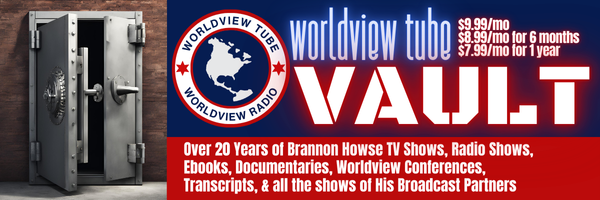Crosstalk: August 8, 2018
Tom DeWeese is the president of American Policy Center. He's one of the nation's leading advocates of individual liberty, free enterprise, private property rights, personal privacy, back-to-basics education, American sovereignty and independence and protecting our Constitutionally-guaranteed rights. He's the author of 'Sustainable: The War on Free Enterprise, Private Property and Individuals'.
Tom began by noting that today we have all these rules and regulations about what you can or can't do with your property, the necessary permits, etc. You have the right to pay the taxes and the mortgage, but every other decision concerning your property seems to take place in a 'back room' somewhere.
Jim had Tom talk briefly about early American economist John Locke. Regarding private property and how important it is to freedom, Locke said that if private property rights and protections don't exist, then the incentive for an industrious person (to develop and improve it) is destroyed. Marauding bands can then confiscate property and goods by force, meaning people will be forced to remain at a bare subsistence level because they'll believe that it does them no good to build something because someone will come along and take it away. So private property includes the idea that it belongs to you and is yours to protect, to develop and to use.
This is why socialism is a fallacy and doesn't work. Tom described the situation by saying we are not ants where we all live in an ant hill and we all just pitch in and do our part no matter what it is. Then on top of that, we're paid the same amount of money whether it's cleaning sewers or being a corporate executive.
In free market capitalism, each person reaps the benefits of what they do. However, that only works if your property is protected. Locke mentioned 'roving bands' and Tom noted that today we have roving bands of government. He cited the Kelo decision of 2006 as an example. In that case it was decided that if a community could better use your property for a different purpose, even if the purpose involved private ownership, it could be taken. So with the Kelo decision, private property is no longer protected. There are private/public partnerships with developers and people sitting in the back room of government meetings with maps as they divide the community via eminent domain.
The key to this broadcast is understanding that the way America grew and became wealthy so quickly was because of ownership of private property and the equity involved. Every bit of our property is registered in the U.S. Once property is registered, at that point it can be used for loans. As Tom pointed out, 60% of the businesses in America were launched by using the equity from their private property to obtain loans and that, in turn, employed a majority of the people. Unfortunately, the concept of private property is under attack, and as this moves along, we're seeing our nation become poorer.
As the broadcast continued there was discussion about those who say land needs to be confiscated for the greater good, conservation or economic development; Tom defined land patents; what we can learn from the former Soviet Union and Venezuela on this issue, and more.


































